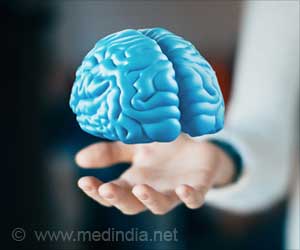Teens may make noisier decisions, but this 'chaos' is key to developing the sharp decision-making skills adults excel at, reveals new research.

- Adults make more sophisticated decisions than adolescents due to reduced decision noise
- Adolescents' choices are more influenced by emotional and motivational factors, leading to noisier decision-making
- Age-related cognitive development plays a crucial role in enhancing decision-making strategies and adaptability
Decrease in decision noise from adolescence into adulthood mediates an increase in more sophisticated choice behaviors and performance gain
Go to source).
Teenagers make noisier, less optimal decisions because their brains are still developing. However, this 'decision noise' can help them learn complex choice behaviors as they grow older! #decisionmaking #plosbiology #medindia’
Does Age Impact Decision-Making?
Learning and decision-making evolve significantly from youth to maturity. Adolescents exhibit distinctive choice behaviors, such as goal-directed behavior and motivational influences on decision. They also consistently exhibit significant amounts of choice noise, i.e. selecting inferior solutions. However, it is unclear whether both observations- the evolution of particular and more sophisticated choice processes and increased decision noise- are independent or connected. Age-related changes in decision noise may have an impact on the development of specific choice processes.Scholz, Deserno, and colleagues tested this hypothesis by analyzing data from 93 people aged 12 to 42 years. Participants completed three reinforcement learning tasks: one assessing motivational influences on choices, one recording adaptive decision-making in response to environmental changes, and one measuring goal-directed behavior.
Why Teens are More Prone to Make Emotional Decisions?
The results showed that noise levels were highly associated with reinforcement learning tasks. Critically, noise levels caused age-dependent increases in more sophisticated choice behaviors and performance improvements. The findings indicate that unspecific noise facilitates the development of highly specific functions or strategies.One possible explanation for these mediation effects is a limited availability of cognitive resources in adolescents due to the ongoing development of brain areas involved in cognitive regulation. Adolescents with lower cognitive resources may be more likely to rely on computationally cheaper decision-making processes, making them more vulnerable to emotional, motivational, and social effects.
Developmental Changes in Decision-Making
Overall, the study gives new insights into the computational processes that underpin developmental changes in decision-making. According to the authors, future research could reveal the neurological foundation as well as the developmental and therapeutic importance of decision noise for neurodevelopmental disorders.The authors continue, "Teenagers make less optimal, so-called 'noisy' decisions." While these noisy decisions decrease as we age, they are also associated with the development of greater complicated decision-making skills, such as planning and adaptability.
Reference:
- Decrease in decision noise from adolescence into adulthood mediates an increase in more sophisticated choice behaviors and performance gain - (https://journals.plos.org/plosbiology/article?id=10.1371/journal.pbio.3002877)
Source-Medindia









